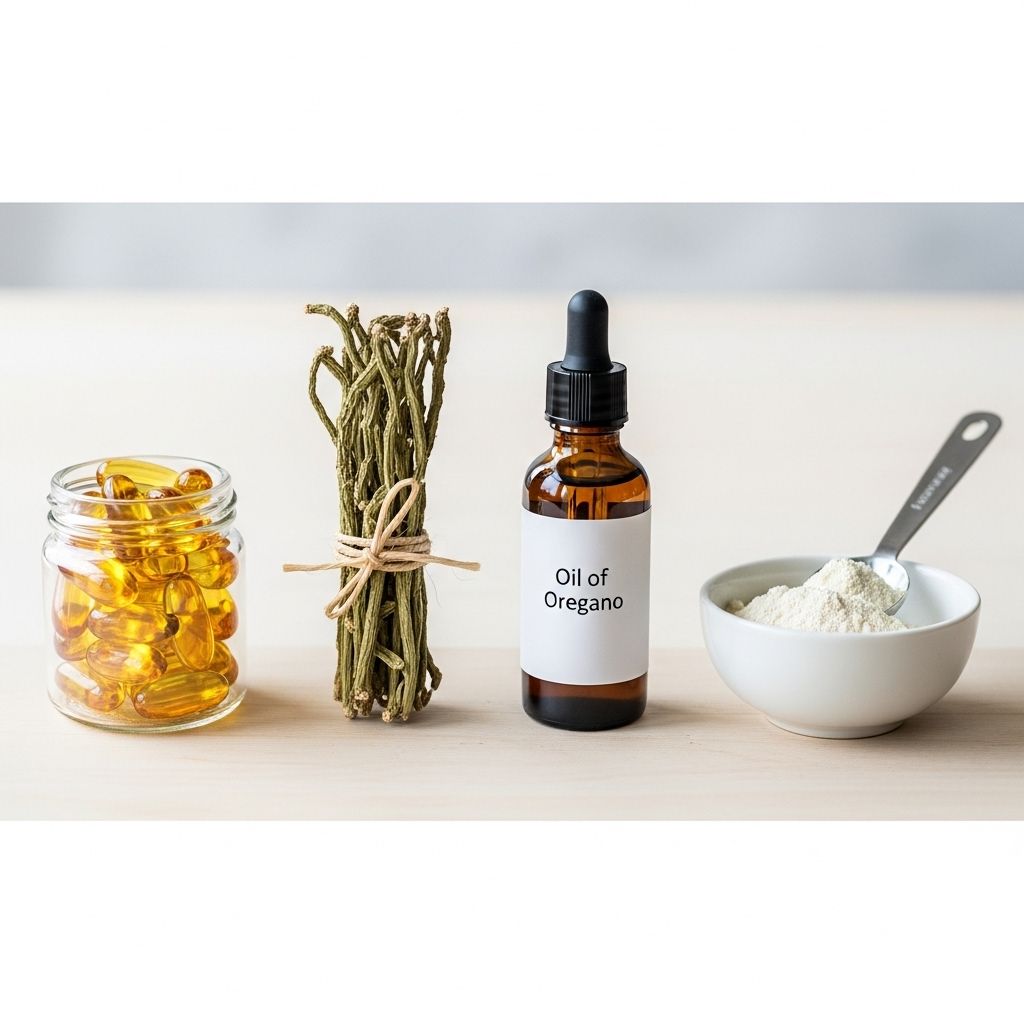Top Natural Supplements for SIBO Management
Reduce intestinal bacterial overgrowth with plant-based extracts and support gut comfort.

Introduction to SIBO and Natural Supplements
Small Intestinal Bacterial Overgrowth (SIBO) is a condition characterized by an abnormal increase in bacteria within the small intestine, leading to symptoms such as bloating, gas, diarrhea, and abdominal pain. While conventional treatments often involve antibiotics, many individuals explore natural supplements as an alternative or complementary approach to manage SIBO symptoms.
Understanding SIBO and Its Symptoms
SIBO can significantly impact quality of life due to its symptoms, which may include:- Bloating and Gas: Excessive gas production from bacterial fermentation.- Abdominal Pain: Pain or discomfort in the abdomen.- Diarrhea or Constipation: Changes in bowel movements.- Nutrient Deficiencies: Impaired nutrient absorption due to bacterial overgrowth.
Natural supplements can be a valuable part of managing SIBO. Here are some of the most effective ones: Herbal AntimicrobialsHerbal antimicrobials are popular for their potential to reduce bacterial overgrowth in the small intestine. Some of the most commonly used include:-
Oregano Oil
: Known for its strong antibacterial properties, particularly due to carvacrol, which can help reduce bacterial overgrowth.-Berberine
: Derived from plants like goldenseal and barberry, berberine has antimicrobial properties that can inhibit harmful bacteria and reduce inflammation.-Neem
: While less commonly discussed for SIBO, neem has antimicrobial properties that may be beneficial.-Garlic Extract
: Contains allicin, which has broad-spectrum antimicrobial effects useful for managing SIBO. ProbioticsProbiotics are beneficial bacteria that can help rebalance the gut microbiome. However, their use in SIBO is controversial, and careful selection is crucial:-Lactobacillus and Bifidobacterium
: These strains are often recommended for promoting healthy gut flora after using antimicrobial herbs. Digestive Enzymes- Digestive enzymes can help improve digestion and may reduce symptoms like bloating and gas by enhancing nutrient absorption. Other Supplements-Betaine HCL and Vitamin B12
: Betaine HCL can aid digestion by increasing stomach acid, while Vitamin B12 can address deficiencies common in SIBO patients.-L-Glutamine and Zinc
: These supplements support gut healing and immune function.Dietary Changes for SIBO Management
Dietary adjustments are crucial in managing SIBO: Low FODMAP Diet- Reducing fermentable oligo-, di-, mono-saccharides, and polyols (FODMAPs) can help minimize symptoms by reducing bacterial fermentation. Soluble Fiber- Adding soluble fiber like psyllium or inulin can help regulate gut motility and reduce symptoms. Elemental Diet- An elemental diet may be recommended in severe cases to give the gut a rest and minimize bacterial overgrowth.
Stress Management and SIBO
High stress levels can exacerbate SIBO symptoms. Techniques like deep breathing or cognitive behavioral therapy can help manage stress and improve gut health.
Frequently Asked Questions (FAQs)
Q: What is SIBO?
A: SIBO stands for Small Intestinal Bacterial Overgrowth, a condition where bacteria in the small intestine grow excessively, leading to symptoms like bloating and abdominal pain.
Q: Are natural supplements effective for SIBO?
A: While natural supplements like herbal antimicrobials and probiotics show promise, their effectiveness can vary, and more research is needed to confirm their benefits for all patients.
Q: Should I combine supplements with dietary changes?
A: Yes, combining supplements with dietary changes like a low FODMAP diet can be more effective in managing SIBO symptoms by addressing both the bacterial overgrowth and nutritional absorption.
Q: Can stress management help with SIBO?
A: Yes, managing stress through techniques like meditation or deep breathing can help improve gut health and reduce SIBO symptoms.
Conclusion
Natural supplements offer a promising approach to managing SIBO, especially when combined with lifestyle and dietary changes. It’s important to consult with a healthcare provider before starting any new supplement regimen to ensure it aligns with your specific health needs.
References
- https://refluxuk.com/education-hub/natural-ways-to-treat-sibo-what-works-and-what-doesnt
- https://naturemed.org/natural-treatment-for-sibo/
- https://citynaturopathic.ca/sibo-natural-treatment/
- https://www.usenourish.com/blog/sibo-natural-treatment
- https://pmc.ncbi.nlm.nih.gov/articles/PMC4030608/
- https://my.clevelandclinic.org/health/diseases/21820-small-intestinal-bacterial-overgrowth-sibo
- https://med.virginia.edu/ginutrition/wp-content/uploads/sites/199/2014/04/SBBO-Diet-10-27-16.pdf
- https://pmc.ncbi.nlm.nih.gov/articles/PMC7748159/
Read full bio of Sneha Tete












